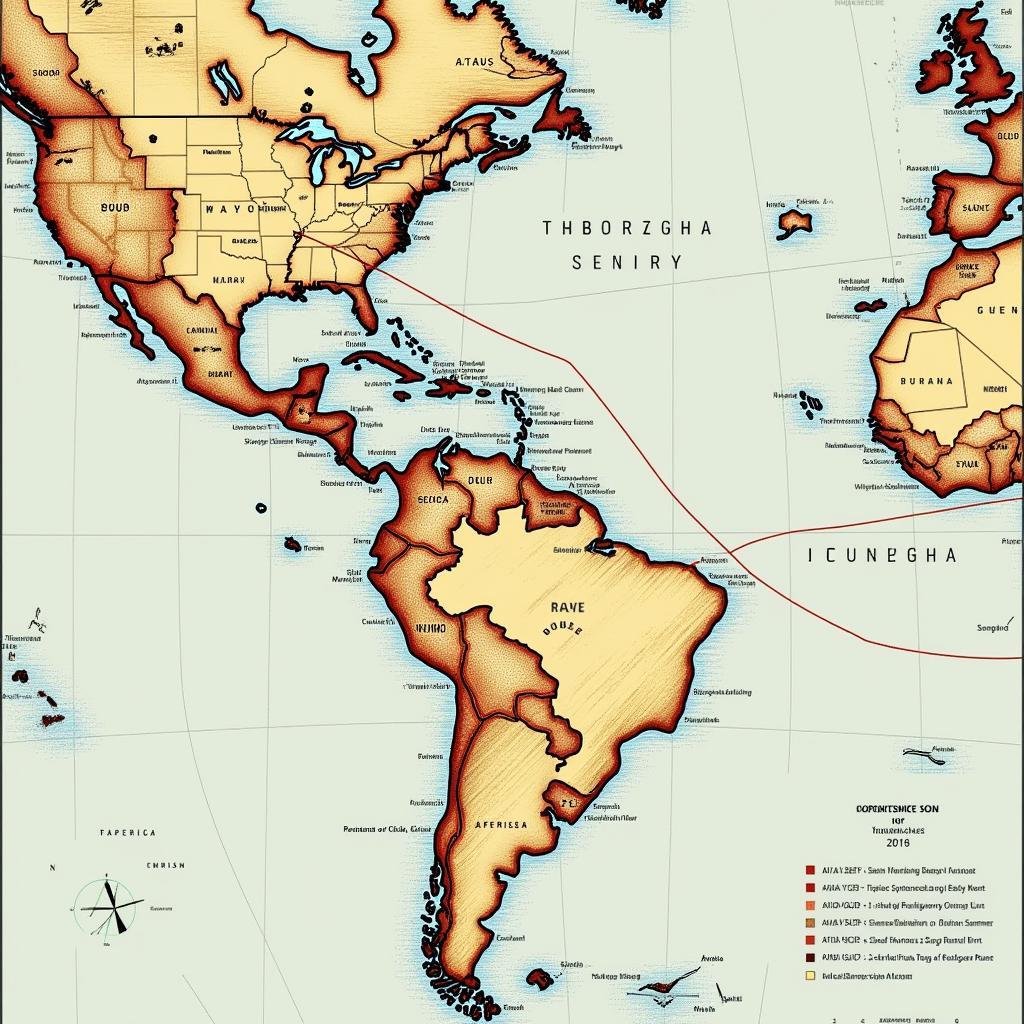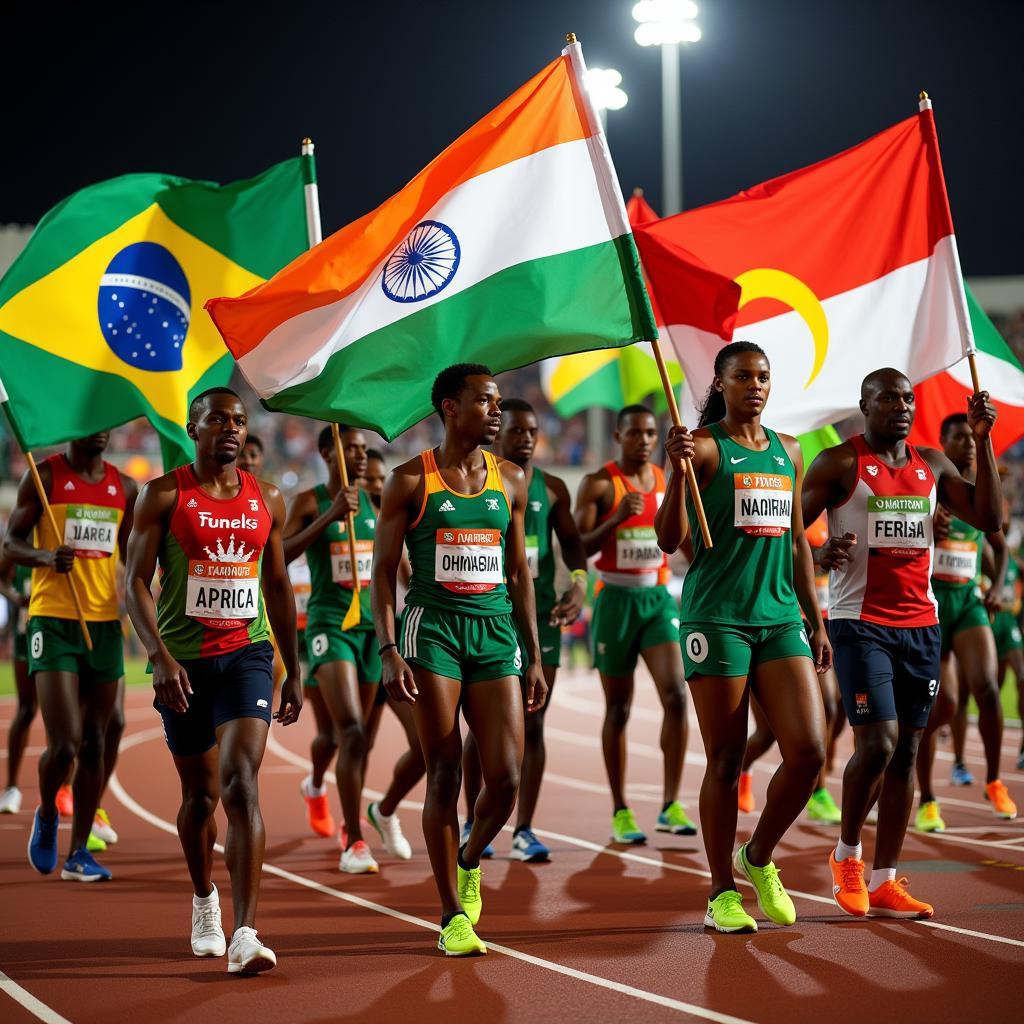African Countries Emerging From Conflict: Stories of Resilience and Rebuilding
The journey of African Countries Emerging From Conflict is often complex and multifaceted, marked by challenges and triumphs. While the scars of conflict can run deep, across the continent, nations are demonstrating remarkable resilience, embarking on paths of peace, reconciliation, and development. These stories offer valuable insights into the human capacity for renewal and the power of collective action in overcoming adversity.
Overcoming the Legacy of Conflict
The impact of conflict extends far beyond the cessation of violence. African countries emerging from conflict often grapple with:
- Destroyed infrastructure: Roads, bridges, schools, and hospitals are frequently targets during conflict, hindering economic activity and access to essential services.
- Displaced populations: Millions of people are displaced within their own countries or forced to seek refuge across borders, leading to humanitarian crises and straining resources.
- Economic instability: Conflict disrupts economic activity, destroys livelihoods, and discourages investment, making the path to recovery even more challenging.
- Trauma and social divisions: The psychological toll of conflict can be profound, leading to lasting trauma and exacerbating existing social divisions.
Seeds of Hope: Paths to Peace and Reconciliation
Despite these challenges, African countries emerging from conflict are actively pursuing peace and reconciliation through various means:
- Peacekeeping and mediation: Regional and international organizations play a critical role in mediating peace agreements, deploying peacekeeping forces, and supporting disarmament, demobilization, and reintegration programs.
- Truth and reconciliation commissions: These commissions provide a platform for victims to share their stories, for perpetrators to acknowledge their actions, and for societies to confront past atrocities, fostering healing and understanding.
- Justice and accountability mechanisms: Establishing transitional justice mechanisms, such as special courts or traditional justice systems, can help address past human rights violations and promote a sense of justice.
- Grassroots peacebuilding initiatives: Local communities are often at the forefront of peacebuilding efforts, engaging in dialogue, reconciliation workshops, and intercommunal projects to rebuild trust.
rwandan-women-peacebuilding-workshop|Rwandan women participating in a peacebuilding workshop|A photograph depicting a group of Rwandan women actively engaged in a peacebuilding workshop. They are seated in a circle, engaging in dialogue and sharing their experiences. The image highlights the vital role women play in post-conflict reconciliation and community rebuilding in Rwanda and across Africa.>
Investing in the Future: Rebuilding and Development
Rebuilding after conflict requires a multi-dimensional approach that addresses immediate needs while laying the foundation for long-term sustainable development:
- Humanitarian assistance: Providing food, shelter, healthcare, and other essential services to conflict-affected populations remains a priority in the immediate aftermath of conflict.
- Economic recovery and development: Investing in infrastructure, supporting small businesses, and promoting job creation are crucial for reviving economies and creating opportunities for all.
- Good governance and institution building: Establishing accountable and transparent institutions, promoting the rule of law, and protecting human rights are essential for fostering stability and attracting investment.
- Education and healthcare: Investing in education and healthcare systems is crucial for human capital development, empowering future generations to break the cycle of conflict.
sierra-leone-children-attending-school|Children in Sierra Leone attending school|An image showcasing a vibrant classroom filled with children in Sierra Leone, attending school and eager to learn. The photo emphasizes the importance of education as a cornerstone of post-conflict recovery and development, offering hope for a brighter future.>
Stories of Progress and Transformation
Across Africa, numerous countries stand as testaments to the power of resilience and the possibility of positive change:
- Rwanda: Emerging from the horrors of genocide, Rwanda has made remarkable strides in reconciliation, economic development, and good governance.
- Sierra Leone: After a brutal civil war, Sierra Leone has made significant progress in consolidating peace, holding democratic elections, and investing in education and healthcare.
- Liberia: Once ravaged by conflict, Liberia has experienced a period of relative peace and stability, working to rebuild its economy and strengthen democratic institutions.
These stories, while not without their challenges, demonstrate that with determination, a commitment to peace, and sustained support from the international community, African countries emerging from conflict can forge a brighter future for their citizens.
The African Cheetah: A Symbol of Resilience
Much like the African cheetah, known for its speed and adaptability in the face of challenges, African nations are demonstrating remarkable resilience in their journey from conflict to recovery.
These stories of resilience and rebuilding serve as an inspiration to the world, reminding us of the power of the human spirit to overcome adversity and build a more peaceful and prosperous future.
FAQs about African Countries Emerging From Conflict
1. What are the biggest challenges for African countries emerging from conflict?
The challenges are multifaceted, encompassing rebuilding infrastructure, addressing widespread trauma, fostering social cohesion, reviving shattered economies, and establishing effective governance systems.
2. How can the international community support these nations?
Support can take many forms, from providing humanitarian assistance and development aid to promoting investment, supporting peacekeeping efforts, and advocating for debt relief.
3. What role does forgiveness play in post-conflict reconciliation?
While justice and accountability are crucial, forgiveness can be a powerful force for healing divisions, rebuilding trust, and fostering lasting peace within communities.
4. Are there any successful models of post-conflict development in Africa?
Rwanda often stands out for its remarkable progress in reconciliation and economic development. Other countries, like Sierra Leone and Liberia, also offer valuable lessons in post-conflict rebuilding.
5. What can we learn from the experiences of these countries?
These stories highlight the importance of resilience, the power of collective action, and the need for long-term commitment from both national actors and the international community in supporting sustainable peace and development.
Exploring More:
To learn more about the vibrant cultures and diverse economies of the continent, delve into these captivating reads:
- Discover fascinating African economy facts that challenge perceptions and showcase the continent’s economic potential.
- Immerse yourself in the soulful sounds of African gospel artists, their music reflecting the spirit of hope and resilience found across Africa.
Need Help?
Have more questions about African countries emerging from conflict? We’re here to assist you 24/7. Contact us at:
Phone: +255768904061
Email: [email protected]
Address: Mbarali DC Mawindi, Kangaga, Tanzania.





